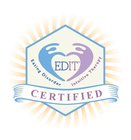|
What???? Yes, I said it --- a nutrition expert who can rattle off a list of the 10 best super foods. It is high time to let go of our existing beliefs that some foods are “good” and some foods are “bad.” That if we eat “good” foods we are “good” and if we eat “bad” foods we are “bad.” Judging ourselves or other people by what they eat is not only cruel, but works against optimal health. Don’t get me wrong --- it is true that different foods do have either a helpful, neutral, or negative impact on the body. Food is powerful information and is the first line of defense in preventing and treating health issues. That being said, food, like money, is morally neutral. From a mind-body perspective, chocolate eaten with happiness may at times be more healthful than a bowl of kale eaten in misery. Here are some reasons why giving up labeling foods as “good” or “bad” is to your advantage: 1. Forbidden Fruit Ever since Eve ate the apple, it is evident that by nature we are attracted to the forbidden. When we label a food “bad,” we set off an internal wrestling match --- we fear it, think about it, fight it, crave it, and if we succumb, label ourselves “bad.” Eating the “bad” food becomes a crime. That is why we sometimes play a game of hide and eat --- ashamed, we eat in secret. Tip: What we resist, persists. One technique is to lift our food rules and give ourselves permission to eat the forbidden food. We may fear that we will totally lose control. Often, we instead discover that it releases the tension of the restriction, diminishing or even eliminating the desire. 2. Unleash Body Wisdom Eating intuitively is the ultimate diet: tapping into unadulterated body wisdom guides your food choices and nourishes your body perfectly. Labeling food as “good” or “bad” halts the natural flow of biological information the body is transmitting. Have you ever craved chocolate? Perhaps your body needs the boost of magnesium that it can provide. Tip: Come to food without judgement. Listen to your body talk --- Ask questions and explore. How do I feel after eating this food? Does a little work well but too much doesn’t agree with me? Does it make my belly feel bloated? joints sore? head ache? Paying attention to body feedback helps you make connections and draw conclusions about what you eat and how you feel. No judgement; food is information! 3. Eating is a thinking event Mind-body nutrition broadens the definition of nourishment to include not only what we eat, but also who shows up at the table. If we force ourselves to eat a “good” food, yet in our minds dread eating it, we put our bodies into a state of stress. Digestion is diminished, metabolism slows, assimilation of nutrients is suppressed, and the fat storage hormones, cortisol and insulin, are elevated. We eat our thoughts as well as the food. Tip: Approach food in a neutral, conscious frame of mind. Seek to eat healthy foods that energize you. Remember that it is okay to eat something that we know is not best for our body if we do so as a conscious choice. 4. Antidote or Poison? One person’s antidote is another person’s poison. Cutting edge research continues to reveal just how unique each person is when it comes to nutrition. Not only do we differ in how a food impacts our blood sugar, but our gut microbiome affects many mental and physical reactions including the tendency to regain weight after dieting. What foods work for your friend/sister/husband/fill-in-the-blank may not be ideal for your body at this moment in time. Tip: Free yourself of comparison. Perhaps you need to up your protein for recovery or repair, or you need some complex carbs at dinner to combat adrenal fatigue. Seek the help of an integrative nutritionist to figure out what foods will serve you best right now. Respect yourself and feel confident that your body knows what it needs. Nourishment encompasses all the ways we feed the many needs of our body and soul. By refusing to assign labels to food, we allow ourselves to take pleasure in eating and maximize nourishment. So, consciously choose to eat the kale and the chocolate without judgement --- “good” and “bad” food labels are irrelevant.
0 Comments
Your comment will be posted after it is approved.
Leave a Reply. |
Susan Taylor,
|
SUSAN TAYLOR NUTRITION
|
|
NOT just another nutritionist or health coach! My unique life experiences and training makes me a compassionate Sherlock Holmes. I help you uncover the root causes of your physical symptoms and emotion-driven behaviors to thrive in your next season of life. Result: a healthier body, mind and spirit.
|
Phone
|


 RSS Feed
RSS Feed




